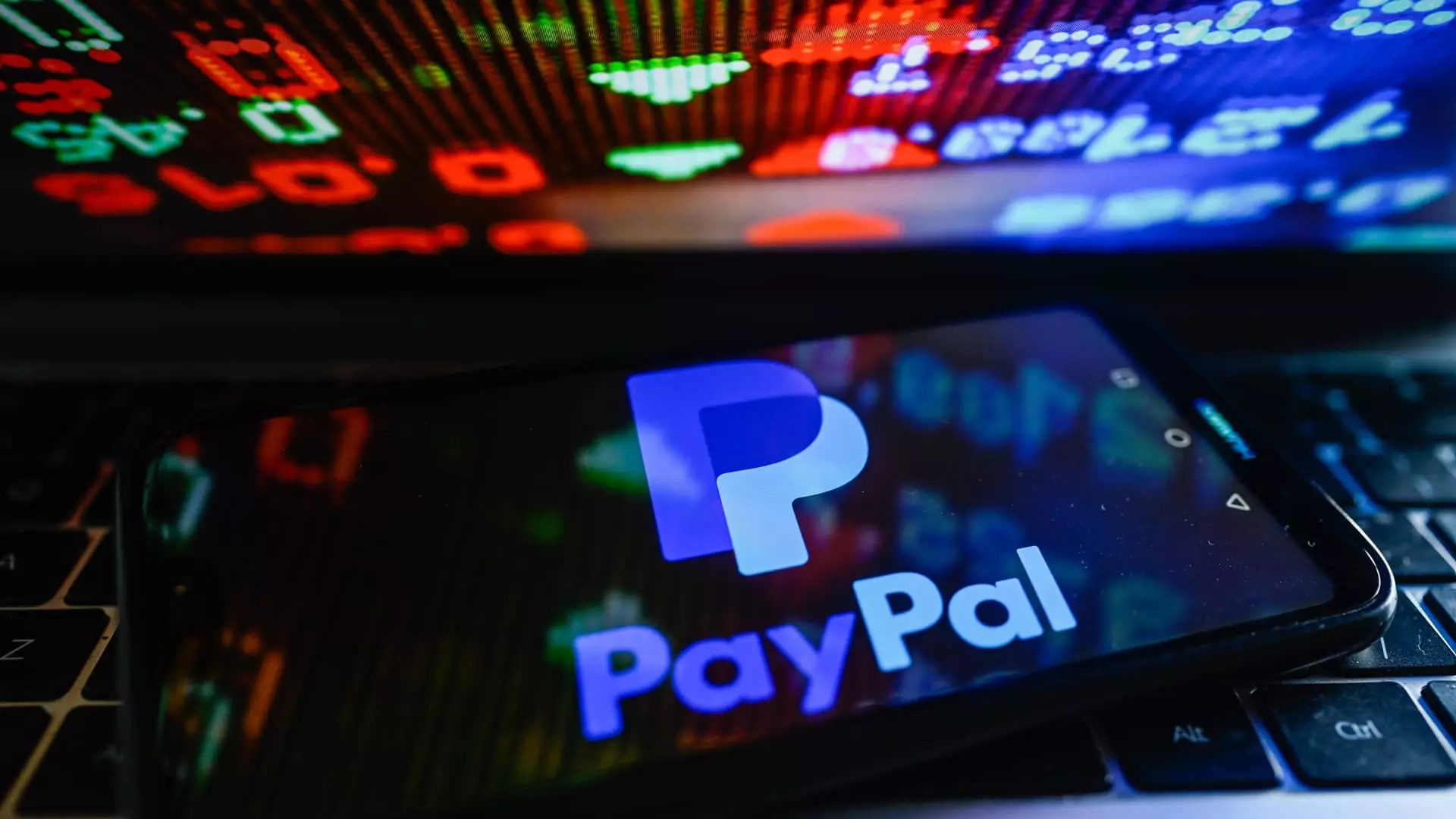The race for dominance in the stablecoin market took an intriguing turn when Coinbase announced it would eliminate fees for purchasing PayPal’s stablecoin, PayPal USD (PYUSD). This strategic move marks a significant shift in the landscape of digital currencies, particularly as cryptocurrencies seek wider acceptance in mainstream finance. With PYUSD’s market capitalization still hovering around $730 million, it unfortunately captures less than 1% of the stablecoin market. This is a stark contrast to leading competitors like Tether’s USDT and Circle’s USDC, which currently command over 94% of the space. However, PayPal’s initiative may just be the catalyst needed to change the narrative surrounding PYUSD and the broader application of stablecoins.
A Stagnant Market Given New Life
Despite launching earlier this year, PYUSD has struggled to gain traction. However, Coinbase’s decision to scrap fees signals a comprehensive effort to enhance adoption and utilization of this stablecoin. Arguably, the crux of the issue lies not just in the technical aspects or market share, but in the pervasive skepticism surrounding stablecoins among traditional users. Many see them merely as tools for speculation rather than as functional currencies. By focusing on practical applications—like enabling cheaper, efficient global transfers—PayPal and Coinbase aim to shift this perception.
This partnership creates a potentially game-changing dynamic; it invites established entities and individuals who might consider holding stablecoins for both speculative gains and day-to-day transactions. Additionally, by allowing direct dollar redemption of PYUSD on Coinbase, the barrier to entry for prospective users is significantly lowered. Such features not only enhance utility but also cultivate a sense of trust and security among users who may be wary of venturing into crypto.
Collaboration as a Strategic Advantage
PayPal’s collaboration with Coinbase goes beyond marketing—it’s about fostering genuine use-case scenarios for PYUSD. By devising stablecoin-based financial solutions that facilitate smoother international transactions, both companies are addressing a fundamental pain point in modern finance: inefficiency. The crypto realm has historically been associated with high volatility and risk; however, PayPal’s integration of stablecoin solutions, particularly in commerce, introduces a much-needed element of stability.
The partnership emphasizes the potential for innovative applications in decentralized finance (DeFi)—a sector teeming with possibilities but still navigating substantial regulatory waters. This could position PYUSD not just as a competitor in the stablecoin market but as a forward-thinking alternative that aligns with evolving consumer needs. More importantly, it may ultimately empower users worldwide to access decentralized economies, making traditional finance seem less appealing.
The Bigger Picture: Legislative Winds of Change
The timing of this announcement coincides with rising anticipation around Congress potentially passing landmark legislation focused on stablecoins in the coming months. This regulatory framework could open doors for adoption among institutions that have long been hesitant to engage with cryptocurrencies due to ambiguous legal ramifications. As stablecoins gain legitimacy through government-sanctioned frameworks, entities like PayPal and Coinbase will be uniquely positioned to capture not just market share, but societal trust as the safe harbor for digital transactions.
The spotlight on regulatory scrutiny creates a paradox—while it constrains the rapid evolution of crypto, it simultaneously legitimizes it. Enhanced regulatory clarity could spur significant institutional interest in PYUSD and its competitors, effectively transforming the perception of stablecoins from mere speculative tools to trusted instruments in the global financial tapestry.
Competitive Landscape and Future Implications
As stakeholders race to establish footholds in the burgeoning stablecoin arena, the narratives surrounding these digital currencies are evolving. Coinbase’s ambitions for building a cohesive global economy utilizing cryptocurrencies cannot be understated. Their proprietary network for Ethereum-compatible applications promises versatility that may disrupt traditional finance models.
Additionally, with companies like Circle aiming to carve out niches in payments and remittances—a territory long dominated by platforms like PayPal—the stakes are higher than ever. PayPal’s expansive user base of over 430 million presents immeasurable opportunities for feedback, innovation, and growth in stablecoin utilization. Aligning with industry pioneers positions PayPal, and by extension PYUSD, as leaders rather than mere participants in this financial revolution.
Paving the Way for Consumer-Driven Adoption
The potential impact of these developments on consumer behavior cannot be understated. By promoting applications like no-fee PYUSD transactions, financial institutions are inviting everyday consumers into a world of digital currencies, which has often been relegated to tech enthusiasts and investors. If PayPal can successfully position PYUSD at the forefront of its consumer offerings, it could catalyze significant shifts in usage patterns, making stablecoins a ubiquitous aspect of day-to-day financial transactions.
In a landscape teetering between traditional finance and the expansive possibilities of cryptocurrency, the advent of PayPal’s stablecoin efforts may signify more than just competition; it could be the beginning of broader acceptance of digital currencies in everyday life.

